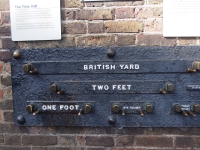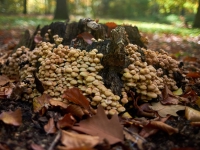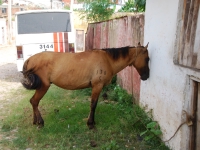pwd |
выводит текущую директорию (display name of current/working directory) |
whoami |
выводит имя текущего юзера (display current user name) |
id |
выводит id текущего юзера (display current user identity (name, uid, gid, and associated groups)) |
file <foo> |
выводит тип файла, переданного в качестве аргумента (display a type of file for the file <foo>) |
type -p <commandname> |
выводит расположение файла, вызывающегося при вводе команды (display a file location of command <commandname>) |
type <commandname> |
выводит информацию о команде (display information on command <commandname>) |
apropos <key-word> |
находит команды, связанные с переданным аргумеентом find commands related to <key-word> |
whatis <commandname> |
display one line explanation on command <commandname> |
man -a <commandname> |
display explanation on command <commandname> (Unix style) |
info <commandname> |
display rather long explanation on command <commandname> (GNU style) |
ls |
list contents of directory (non-dot files and directories) |
ls -a |
list contents of directory (all files and directories) |
ls -A |
list contents of directory (almost all files and directories, i.e., skip .. and .) |
ls -la |
list all contents of directory with detail information |
ls -lai |
list all contents of directory with inode number and detail information |
ls -d |
list all directories under the current directory |
tree |
display file tree contents |
lsof <foo> |
list open status of file <foo> |
lsof -p <pid> |
list files opened by the process ID: <pid> |
mkdir <foo> |
make a new directory <foo> in the current directory |
rmdir <foo> |
remove a directory <foo> in the current directory |
cd <foo> |
change directory to the directory <foo> in the current directory or in the directory listed in the variable $CDPATH |
cd / |
change directory to the root directory |
cd |
change directory to the current user’s home directory |
cd /<foo> |
change directory to the absolute path directory /<foo> |
cd .. |
change directory to the parent directory |
cd ~<foo> |
change directory to the home directory of the user <foo> |
cd - |
change directory to the previous directory |
</etc/motd pager |
display contents of /etc/motd using the default pager |
touch <junkfile> |
create a empty file <junkfile> |
cp <foo> <bar> |
copy a existing file <foo> to a new file <bar> |
rm <junkfile> |
remove a file <junkfile> |
mv <foo> <bar> |
rename an existing file <foo> to a new name <bar> (<bar> must not exist) |
mv <foo> <bar> |
move an existing file <foo> to a new location <bar>/<foo> (the directory <bar> must exist) |
mv <foo> <bar>/<baz> |
move an existing file <foo> to a new location with a new name <bar>/<baz> (the directory <bar> must exist but the directory <bar>/<baz> must not exist) |
chmod 600 <foo> |
make an existing file <foo> to be non-readable and non-writable by the other people (non-executable for all) |
chmod 644 <foo> |
make an existing file <foo> to be readable but non-writable by the other people (non-executable for all) |
chmod 755 <foo> |
make an existing file <foo> to be readable but non-writable by the other people (executable for all) |
find . -name <pattern> |
find matching filenames using shell <pattern> (slower) |
locate -d . <pattern> |
find matching filenames using shell <pattern> (quicker using regularly generated database) |
grep -e "<pattern>" *.html |
find a “” in all files ending with .html in current directory and display them all |
top |
display process information using full screen, type q to quit |
kill <1234> |
kill a process identified by the process ID: “<1234>” |
gzip <foo> |
compress <foo> to create <foo>.gz using the Lempel-Ziv coding (LZ77) |
gunzip <foo>.gz |
decompress <foo>.gz to create <foo> |
bzip2 <foo> |
compress <foo> to create <foo>.bz2 using the Burrows-Wheeler block sorting text compression algorithm, and Huffman coding (better compression than gzip) |
bunzip2 <foo>.bz2 |
decompress <foo>.bz2 to create <foo> |
tar -xvf <foo>.tar |
extract files from <foo>.tar archive |
tar -xvzf <foo>.tar.gz |
extract files from gzipped <foo>.tar.gz archive |
tar -xvf -j <foo>.tar.bz2 |
extract files from <foo>.tar.bz2 archive |
tar -cvf <foo>.tar <bar>/ |
archive contents of folder <bar>/ in <foo>.tar archive |
tar -cvzf <foo>.tar.gz <bar>/ |
archive contents of folder <bar>/ in compressed <foo>.tar.gz archive |
tar -cvjf <foo>.tar.bz2 <bar>/ |
archive contents of folder <bar>/ in <foo>.tar.bz2 archive |
zcat README.gz > foo |
create a file foo with the decompressed content of README.gz |
zcat README.gz >> foo |
append the decompressed content of README.gz to the end of the file foo (if it does not exist, create it first) |






























